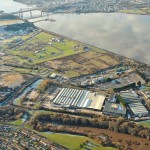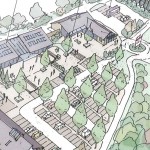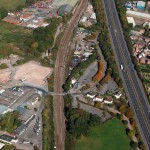Development Consultancy
We assist landowners, developers and business occupiers to achieve a desired development result from land and buildings. Our maxim is to add value to the land or property and we are plain about the possibilities at a very early point in our advice.
By interpreting current markets and trends we introduce to the process an early mark of reality in assessing the viability and timescales from the inception of a scheme to the point where planning consents are obtained. Where the development vision is not obvious or the history is ambiguous we attempt to introduce new thinking and ideas so as to achieve something that is viable and possible. If there is no hope we say so.
The planning process
By coordinating the correct team to suit the project we bring together all those necessary to make a compliant application to a local authority. We work with town planners, architects, environmental and highway experts to ensure the planning stage of a project is on a sound footing on time and on budget.
In a system fraught with regulations and constant change every scheme will develop its own needs and emphasis, so our aim is identify and manage the process to best effect and with a constant eye of the budget and timescales. Increasingly important is the need to satisfy local stakeholders and environmental requirements which we endeavour to address with an understanding approach that still maintains the commercial viability of the scheme in question.
Legal Agreements (Section 106 Town & Country Planning Act 1990) and Community Infrastructure Levy (CIL)
We are fully conversant with the need for planning authorities to extract value from the planning process using various tools at their disposal. Through this understanding we are able to ensure a scheme satisfies the policy requirements and yet maintains viability. We augment this process by providing empirical market data and valuations that the local authorities require to agree any deviation from policy.
Local Plans
Each local authority is required by government to produce a written plan giving the direction and policy framework in which development takes place over the next generation. This is achieved through public consultation and interpretation of growth predictions, changing patterns in population, work methods environmental and transport.
We assist landowners and interested private sector stakeholders in influencing this process by maintaining a working knowledge of the background government directives and the way in which leading edge policy is shaping into the future. By constant discussion with local authorities and the forums for public discussion we represent viewpoints in inquiries or by written submissions.
Land Assembly
It is often the case that one parcel of land cannot be developed or even considered as a prospect without another tract or several tracts of land being involved. This is common in edge of town or central commercial areas where an assembly is essential to make a viable project.
We carry out land assembly and landowner agreements from the perspective of fairness and commercial reality and is usually successful. Our experience in this sometimes complicated and exacting exercise is based on many years of dealing with factionalized land interests where personal and money-making demands are apparently extreme to the extent they are insurmountable.
Not always can there be a resolution: but when the genuineness of the whole project is explained and understood AND most importantly can be seen to be set into a contractual position that is clear and unambiguous, then most positions can be settled.
Options and Promotion agreements
Landowners and developer interests can be aligned so as to defray the cost and risk of the development process in return for a secure position on the land to be developed. We have detailed knowledge of the range of contracts that can be put in place to suit each individual circumstance. We are in a position to negotiate terms that have mutual benefit to landowner and developer and ensure fair play in what has become a most important element to the financing of the high costs involved in promoting land for development.








